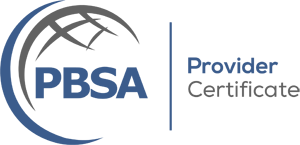The Importance of References in Employment Screening
The Importance of References in Employment Screening
A seasoned manager once told me, "The past is the best predictor of the future." This wisdom rings especially true in the context of employment screening, where references from former employers, managers, and colleagues provide invaluable insights into a candidate's potential.
Candidates should be well-prepared to offer references when job hunting. Here’s how you can make the most of this opportunity to boost your chances of securing your desired position.
Selecting the Right References
When compiling your list of references, it's essential to choose individuals who can speak to your professional skills and work ethic. Aim to provide three to five professional references, such as former managers, supervisors, colleagues, or business partners. Avoid personal references like family members or friends unless explicitly requested by the employer.
Informing Your References
Always notify your references before listing them. It ensures they are prepared and allows you to guide them on the information you’d like them to share. Inform them about the job you’re applying for, the company, and highlight specific projects or skills you’d like them to mention. For example, you might say, “I’d appreciate it if you could act as a reference for my application to Company X for Position Y. In this role, I'll be doing Z, and it would be great if you could highlight my contributions to Project ABC and my teamwork skills.”
What Former Employers Can Disclose
Former employers can share both factual and subjective information about your time with them. This includes your job title, dates of employment, and salary, as well as their opinions on your strengths, weaknesses, and overall performance. While they must avoid discriminatory comments or false statements, they have leeway in the information they can disclose beyond the basic questions asked by prospective employers.
Many organizations, however, limit their responses to avoid legal risks, often sticking to job titles, employment dates, and salary details only.
Beyond the Listed References
Prospective employers might not limit themselves to your provided references. If a specific reference is missing from your list, they might reach out to that company directly. Additionally, HR professionals and recruiters often utilize their networks to gather information about candidates, potentially contacting individuals who aren't on your reference list. This is a common practice unless the information obtained is discriminatory or false.
Addressing and Explaining Gathered Information
Whether you'll have the chance to explain or correct the information gathered during reference checks varies by employer. While it's considered best practice to allow candidates to respond to reference feedback, not all employers adhere to this. To preempt potential issues, provide references from recent positions and proactively address any negative information that might surface.
Final Thoughts
References are crucial in the hiring process, offering a comprehensive view of a candidate’s suitability for a role. To maximize their impact, carefully select your references, notify them in advance, guide them on the key points to mention, and follow up with gratitude and updates on your job search.
While you can’t control every aspect of the reference check process, you can influence it positively by strategically managing your references, ensuring they enhance your application and present you in the best possible light.

Blaine is the Co-Founder and COO of Western Verify, and spends his free time hosting parties or traveling with his amazing family.


